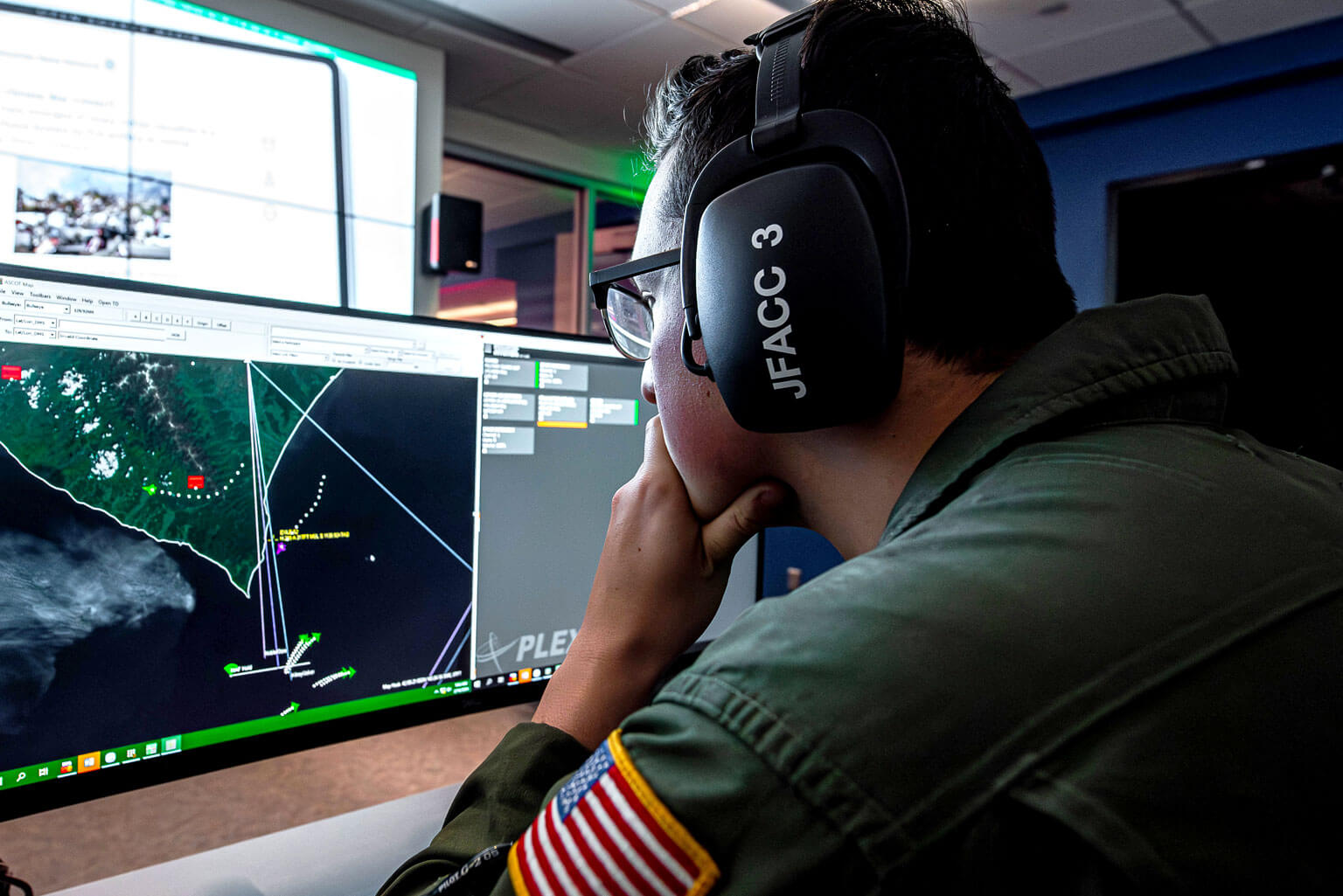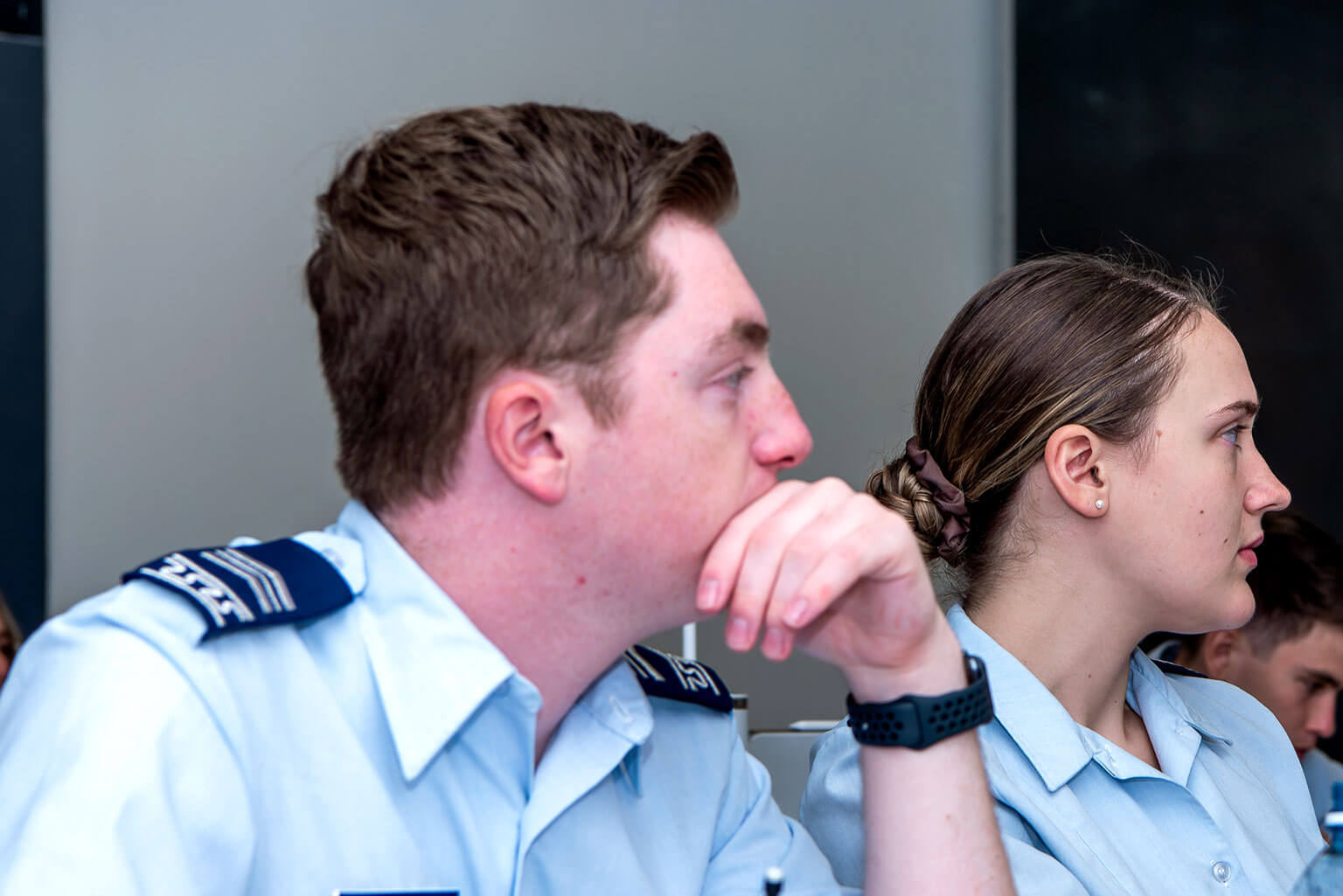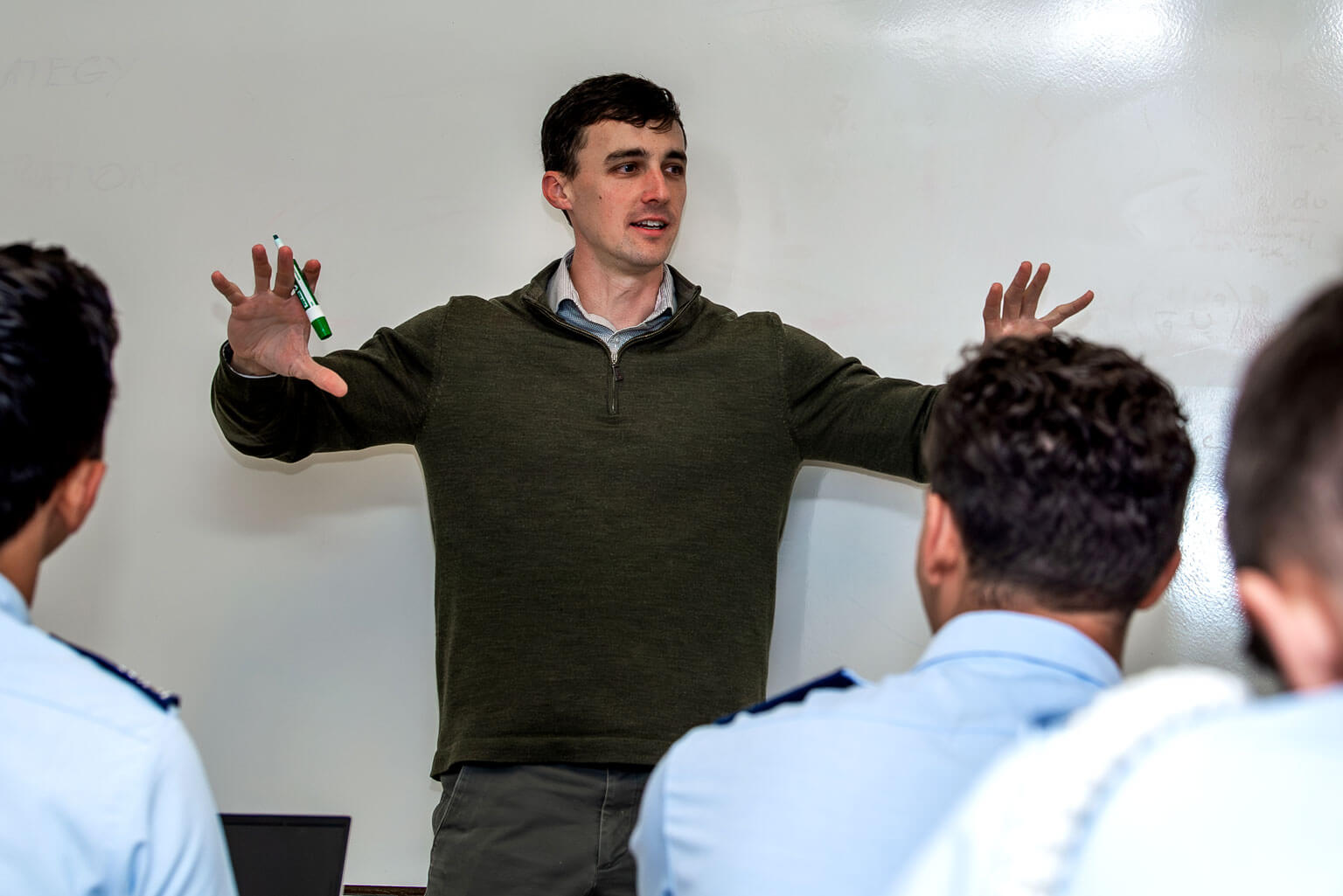Institute for Future Conflict: transforming cadets into tomorrow’s warfighters

A cadet monitors activity during Firstie Flag in the Multi-Domain Laboratory Feb. 10, 2024. Firstie Flag is the U.S. Air Force Academy’s culminating exercise, designed to prepare Firstie cadets for how their future U.S. Air Force and U.S. Space Force specialty codes will factor into future conflict. (U.S. Air Force photo by Trevor Cokley)
By Randy Roughton
U.S. Air Force Academy Strategic Communications
U.S. AIR FORCE ACADEMY, Colo. – In early July, the Institute for Future Conflict director introduced the Class of 2028 to the current international political environment during their Basic Cadet Training.
“President Xi Jinping wants the People’s Liberation Army ready to move by 2027,” said retired Lt. Gen. Bradford Shwedo, paraphrasing a comment from U.S. Indo-Pacific commander Adm. John C. Aquilino earlier this year. “Freshman, this means you have 995 days to get ready.”
Shifting the focus to great-power adversaries across multiple domains
The Institute for Future Conflict develops cadets into U.S. Air Force and U.S. Space Force officers who can anticipate and respond to the future fight. Since its creation at the U.S. Air Force Academy in 2019, the IFC has prepared cadets to shift from a Global War on Terrorism mindset to multi-domain great-power conflicts against potential adversaries.
The IFC fellows and staff support development of the nation’s future warfighters through a variety of events. These include classified intelligence briefings with senior military leaders, briefings on space operations and emerging threats for the Azimuth space education program, and critical-thinking lectures and workshops. A critical feature of this education includes requiring cadets to imagine themselves in adversary leadership roles and write papers from their perspective. Each event or course is designed to prepare cadets to make the right decisions as officers by thinking like the enemy to more effectively counter them.
“The Institute for Future Conflict is preparing us to become warfighters by providing us with global context,” said Cadet 1st Class Ryan McCauley, a Military and Strategic Studies major. “The most valuable thing the IFC has done for us is putting us into the shoes of our opponents and making us think, not just like the United States but like other countries would, so we can view the world differently and examine how our adversaries are thinking.”
Virtual classified briefings with senior leaders
Cadets and IFC fellows and personnel with top-secret clearances learn the latest Department of Defense developments through virtual briefings with senior Pentagon leaders. For example, earlier this year, former U.S. Air Warfare Center Commander Lt. Gen. Case Cunningham, Class of 1994, shared the tactics, techniques and procedures the U.S. needs to develop to maintain tactical air superiority at the Department of Military and Strategic Studies 2024 Strategy and Warfare Symposium.

Cadets attend the Institute for Future Conflict’s Adversary Doctrine class Aug. 20, 2024. (U.S. Air Force photo by Justin Pacheco)
Supporting Space Force cadets during Azimuth
The IFC supports the Azimuth summer space education and training program by providing classified briefings on space operations and emerging threats. This summer, Shwedo emphasized the importance of space in joint warfare.
Maj. Katie McCarty, an IFC fellow, introduced cadets to Space Force cyber operations and artificial intelligence and their importance in future conflicts. This early exposure prepares Academy and ROTC cadets to leverage these domains for the competitive warfighter advantage, McCarty said.
The Institute for Future Conflict delivered to almost 100 fellow cadets and midshipmen at Azimuth. The session stressed the critical need to anticipate future conflicts and the importance of the joint domain to help shape their approach to solving future challenges.
Critical thinking instruction
Retired Brig. Gen. David Stilwell, Class of 1987, the John Fox Fellow for Future Pacing Threats, organized four lectures on critical thinking this summer to equip staff, faculty and cadets to better understand and counter misinformation. Stilwell came to the IFC after Shwedo, his former U.S. Air Force Academy and Preparatory School classmate, asked him to return to their alma mater to elevate cadet knowledge on China and Chinese culture.
Stilwell was also a full-time Mandarin language instructor during the 2023-24 academic year.
“The language aspects were important, but it also gave me a chance to explain the reality of Communist China and develop their understanding of the new cold war they will face after graduation,” he said.
As the cadets took an increased interest in the People’s Republic of China’s disinformation campaign, Stilwell developed the critical thinking curriculum as a counter-method.
The IFC continues to introduce new courses into the curriculum. Strategic Competition was offered last semester. Adversary Doctrine is available this fall. Next is Fiction and Future Conflict in the spring.

Institute for Future Conflict professor Dr. Giles Arceneaux teaches his Adversary Doctrine class Aug. 20, 2024. (U.S. Air Force photo by Justin Pacheco)